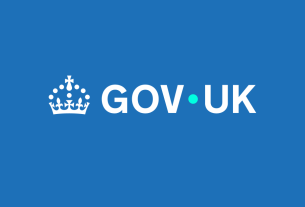Mali Junta Chief Grants Himself Unlimited Mandate, Expands Military Control
On Thursday, Mali’s junta chief, General Assimi Goita, approved a new law granting himself a renewable five-year presidential mandate, effectively extending his rule until at least 2030. The law, which allows Goita to remain in power without elections, was signed on Tuesday following approval by the military-appointed legislative body last week. This move contradicts the junta’s previous commitment to return to civilian rule by March 2024, raising concerns over Mali’s democratic future.
This latest development is part of a broader trend of political consolidation by Mali’s military leadership, which has increasingly restricted civil liberties. In May, the junta dissolved all political parties and banned public meetings, intensifying its control over the country. The law further isolates Mali from international calls for democratic reforms, while the junta presses for national unity in the face of ongoing jihadist violence.
Military Airlifts Gold Amid Ongoing Dispute with Barrick Mining
A Malian military helicopter was seen transporting gold from the Barrick-owned Loulo-Gounkoto mining complex on Thursday, shortly after a Bamako court appointed a provisional administrator to oversee the site’s operations. Barrick, which suspended operations in January following a dispute over the implementation of a new mining code, had its exports blocked by the government, and several of its executives were detained.
The conflict has escalated due to a new mining code that increases taxes and demands greater state control over profits from the country’s largest gold mining site. Barrick has taken the issue to the World Bank for arbitration, while the Malian government seeks to assert greater control over its natural resources.
Burkina Faso’s Only Pediatric Ophthalmologist Battles Trauma and Access Challenges
Dr. Claudette Yaméogo, Burkina Faso’s sole pediatric ophthalmologist, is treating an increasing number of children suffering from eye injuries, often caused by both play and the country’s ongoing conflict. However, the country’s severe lack of accessible medical services, especially in rural areas, means many of these cases are not identified until they become too advanced to treat effectively.
Yaméogo reports that the majority of her young patients come from rural areas, where the lack of medical infrastructure is compounded by violence from extremist groups. Despite government assurances that healthcare for children under 5 is covered, a shortage of medications forces families to purchase treatments at high costs, further entrenching inequalities in access to care.
Sudan: Escalating War Crimes and Sexual Violence in Darfur
The International Criminal Court (ICC) has warned of rising war crimes and systematic sexual violence in Sudan’s Darfur region, as the conflict between the Sudanese Armed Forces and the Rapid Support Forces (RSF) deepens. According to ICC Deputy Prosecutor Nazhat Shameem Khan, there are “reasonable grounds to believe” that atrocities are being committed, including the targeted use of sexual violence as a weapon of war.
Reports from the region also highlight the targeting of humanitarian convoys and the destruction of vital infrastructure, including hospitals, as part of a broader strategy to deepen the humanitarian crisis. The violence in Darfur continues to exacerbate the suffering of civilians already facing severe displacement and food insecurity.
South Sudan Faces Expanding Cholera Emergency Amid Flooding and Displacement
South Sudan is grappling with a growing cholera outbreak, with over 79,000 cases and more than 1,400 deaths reported. The emergency has been aggravated by ongoing flooding, displacement, and limited access to basic services. A joint statement from the country’s Ministry of Humanitarian Affairs and the UN emphasized the need for a coordinated response, including the deployment of medical supplies and the expansion of cholera vaccination campaigns.
The situation has been exacerbated by inadequate infrastructure, particularly in remote areas, where people displaced by violence are most vulnerable to waterborne diseases. The response plan calls for improved water, sanitation, and hygiene services, alongside efforts to ensure access to essential nutrition and health services.
Farmers in the DRC Resort to Burning Land to Clear Explosives
In the conflict-ridden Lubero territory of the Democratic Republic of Congo (DRC), farmers have resorted to setting fire to their own land to clear unexploded ordnance (UXO) left behind by ongoing clashes between government forces and the M23 rebel group. While this tactic may temporarily detonate smaller explosives, it has devastating environmental consequences, including soil degradation, loss of biodiversity, and air pollution.
Environmental experts warn that this practice exacerbates the region’s already dire economic and food security situation, as it destroys fertile land and accelerates erosion. The conflict in the region remains unresolved, leaving many farmers to contend with the long-term effects of warfare on their livelihoods.
DR Congo: Optimism Amid Football’s Role in Peacebuilding
In the Democratic Republic of Congo, the national football teams’ success is providing a rare moment of optimism. The women’s team is participating in the 2024 Africa Cup of Nations (WAFCON) for the first time in over a decade, and the men’s team is on track to qualify for the 2026 World Cup. Amidst these sporting milestones, the ongoing peace talks between DRC and Rwanda are fostering hope that the country’s long-standing conflicts may finally be coming to an end.
Football is increasingly being seen as a potential tool for peacebuilding, offering young people an opportunity to escape violence and poverty while fostering stronger social bonds across communities. A successful peace agreement could lead to investment in sports infrastructure, furthering youth engagement and promoting national unity.
Somalia: Surge in Attacks on Media Freedom Amid Press Crackdown
In the first half of 2025, Somalia has seen a dramatic increase in attacks on journalists, according to the National Union of Somali Journalists (NUSOJ). A record 41 incidents of media violations were reported, the highest mid-year tally in three years. The majority of these violations occurred in Mogadishu, where both the Somali Federal Police and the National Intelligence and Security Agency (NISA) have been implicated in the suppression of critical media.
NUSOJ condemned the rise in censorship, emphasizing that these actions undermine the country’s democratic process and citizens’ right to information. As Somalia faces continued political and security instability, journalists remain on the frontlines of the battle for transparency and accountability.
Kenya’s President Appoints New Electoral Commission Officials
Kenya’s President William Ruto has appointed a new chairperson and commissioners to the Independent Electoral and Boundaries Commission (IEBC), filling key positions ahead of the 2027 general elections. The new appointments come after a year-long delay, during which legal disputes over previous commissioners’ dismissal hindered the commission’s functionality.
Ruto faces mounting pressure from protests over rising living costs and allegations of corruption. With the IEBC now fully staffed, Kenya’s electoral processes will be under intense scrutiny, particularly after the contentious 2022 elections.
Morocco’s Push for Digital Sovereignty with New Data Centre
Morocco is advancing its digital sovereignty ambitions by planning a new state-owned data centre in Dakhla, powered entirely by renewable energy. The 500-megawatt centre aims to ensure the secure storage of national data and positions Morocco as a regional digital hub. This is part of the broader digital transformation strategy, which includes expanding fibre optic infrastructure and investing in artificial intelligence.
The new data centre will complement Morocco’s existing digital infrastructure, including the Mohammed VI Polytechnic University’s sovereign data centre. Morocco’s push for data sovereignty reflects a growing global trend of nations asserting control over their citizens’ digital information.
Senegalese Navy Intercepts 201 Migrants in Deadly Atlantic Crossing
The Senegalese navy has intercepted 201 migrants attempting to cross the Atlantic Ocean to Europe. The operation took place in the Fatick region of western Senegal, with 132 migrants stopped aboard a pirogue and 69 others arrested on land. Despite a decrease in migration across the Mediterranean, the Atlantic route to Spain’s Canary Islands remains one of the deadliest.
The migrants, many from West African countries, are fleeing poverty and violence in their home countries. This interception highlights the ongoing challenges posed by irregular migration, even as European governments struggle to address the root causes of the crisis.
WAFCON 2024: Women’s Africa Cup of Nations Finals Set to Kick Off in Morocco
The 2024 Women’s Africa Cup of Nations (WAFCON) has begun in Morocco, with the host nation drawing 2-2 against Zambia in an exciting opening match. The tournament, delayed by a year, will feature 12 teams, including record champions Nigeria and defending champions South Africa.
This year’s competition, taking place at newly renovated venues, will see a significant increase in the prize pool, with the winners set to receive $1 million. The event offers both sporting thrills and an opportunity to showcase the growing influence of women’s football across Africa.



